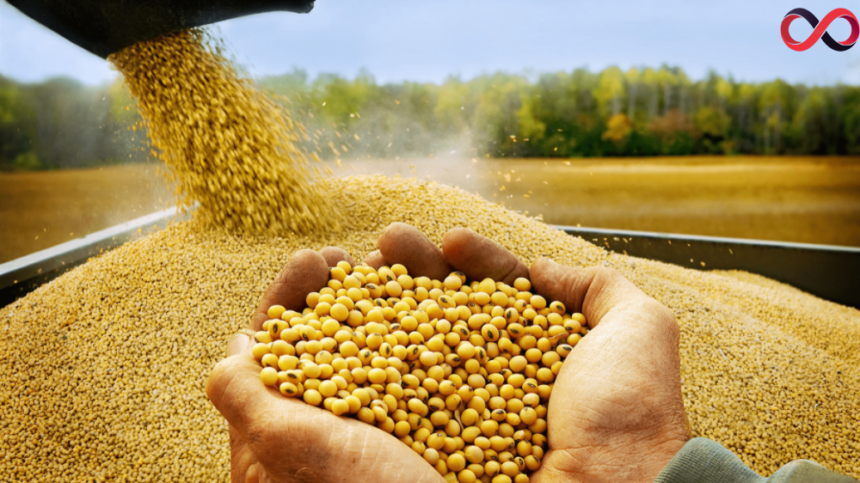Agrawau is a term that encapsulates a broad range of meanings and applications across various fields. From its origins in cultural contexts to its implications in technology, agriculture, and industry, Agrawau serves as a fascinating case study of a concept that interlinks multiple disciplines. This comprehensive article will delve into the definition, significance, applications, and future prospects of Agrawau, providing a thorough understanding of its role in contemporary society.
Understanding Agrawau
Definition of Agrawau
Agrawau is often associated with agricultural practices, sustainable development, and community engagement. It refers to initiatives and methodologies that promote responsible farming, ecological balance, and socio-economic progress. The term may vary in meaning depending on the context, but its core essence revolves around the idea of enhancing productivity while ensuring environmental sustainability.
Historical Context
The roots of Agrawau can be traced back to ancient agricultural practices that emphasized harmony between farming and nature. Traditional farming communities understood the importance of crop rotation, biodiversity, and the sustainable use of natural resources. Over time, as industrialization took hold, these practices were often sidelined in favor of more intensive farming methods. However, the increasing awareness of environmental issues has led to a resurgence of interest in Agrawau principles, highlighting the need for sustainable practices in modern agriculture.
Key Features of Agrawau
1. Sustainable Agriculture
One of the primary features of Agrawau is its emphasis on sustainable agriculture. This approach seeks to maximize crop yields while minimizing environmental impact. Techniques such as organic farming, permaculture, and agroforestry are integral to Agrawau practices. These methods promote soil health, reduce chemical inputs, and enhance biodiversity, contributing to a more resilient agricultural system.
2. Community Engagement
Agrawau also emphasizes the importance of community engagement in agricultural practices. Involving local communities in decision-making processes ensures that farming practices align with the needs and values of those who depend on the land. This collaborative approach fosters a sense of ownership and responsibility, ultimately leading to more sustainable outcomes.
3. Technological Integration
The integration of technology in Agrawau practices is essential for enhancing efficiency and productivity. Precision agriculture, data analytics, and smart farming technologies enable farmers to make informed decisions based on real-time data. This technological advancement allows for optimized resource use, reducing waste and improving crop yields.
4. Climate Resilience
Agrawau practices are designed to enhance the resilience of agricultural systems in the face of climate change. By promoting diverse cropping systems and sustainable land management practices, Agrawau helps farmers adapt to changing weather patterns, pests, and diseases. This adaptability is crucial for ensuring food security in a rapidly changing world.
5. Economic Viability
The economic aspect of Agrawau cannot be overlooked. Sustainable practices often lead to cost savings in the long run. By reducing dependence on synthetic inputs and enhancing soil fertility, farmers can lower their production costs while increasing their profitability. Moreover, Agrawau encourages the development of local markets, which can boost rural economies and create job opportunities.
Applications of Agrawau
1. Organic Farming
One of the most direct applications of Agrawau principles is organic farming. This practice avoids synthetic fertilizers and pesticides, focusing instead on natural inputs to maintain soil health and manage pests. Organic farming not only benefits the environment but also meets the growing consumer demand for organic products, offering farmers a competitive edge in the market.
2. Agroforestry
Agroforestry combines agriculture and forestry practices to create more sustainable and productive land use systems. By integrating trees into agricultural landscapes, farmers can improve soil health, increase biodiversity, and provide additional income sources through timber and non-timber forest products. This practice exemplifies the Agrawau approach of harmonizing farming with nature.
3. Community-Supported Agriculture (CSA)
Community-supported agriculture is a model that directly connects consumers with local farmers. In a CSA, community members purchase shares of the harvest in advance, providing farmers with the capital needed for the growing season. This model fosters community engagement, strengthens local food systems, and ensures that consumers have access to fresh, locally grown produce.
4. Permaculture
Permaculture is an agricultural philosophy that promotes sustainable and self-sufficient land use. It emphasizes the design of agricultural systems that mimic natural ecosystems, enhancing productivity while minimizing environmental impact. Permaculture aligns closely with Agrawau principles, advocating for responsible resource management and ecological balance.
5. Sustainable Livestock Management
Agrawau principles can also be applied to livestock management. Sustainable practices such as rotational grazing, integrated pest management, and the use of heritage breeds contribute to the well-being of animals and the health of the land. By focusing on animal welfare and environmental sustainability, farmers can create a more resilient and productive livestock system.
Advantages of Agrawau
1. Environmental Benefits
Agrawau practices offer significant environmental benefits. By reducing chemical inputs, enhancing soil health, and promoting biodiversity, these practices contribute to healthier ecosystems. Sustainable agriculture helps mitigate climate change by sequestering carbon in the soil and reducing greenhouse gas emissions.
2. Improved Food Security
The focus on sustainable practices enhances food security by promoting resilient agricultural systems. Diverse cropping practices and local food production contribute to stable food supplies, reducing reliance on global food markets and ensuring that communities have access to nutritious food.
3. Economic Sustainability
Agrawau promotes economic sustainability by encouraging farmers to adopt practices that reduce costs and enhance profitability. By focusing on local markets and sustainable practices, farmers can improve their financial stability and contribute to the economic health of their communities.
4. Social Equity
Community engagement is a cornerstone of Agrawau, promoting social equity in agricultural practices. By involving local communities in decision-making, Agrawau ensures that the voices of marginalized groups are heard, fostering social cohesion and inclusivity.
5. Enhanced Quality of Life
Implementing Agrawau principles can lead to improved quality of life for farmers and their communities. Healthier ecosystems, sustainable food systems, and economic stability contribute to overall well-being, allowing individuals to thrive in their environments.
Challenges of Implementing Agrawau
1. Resistance to Change
One of the primary challenges in adopting Agrawau practices is the resistance to change from traditional farming methods. Farmers may be hesitant to shift from familiar practices, particularly if they are unsure about the benefits of new approaches. Education and outreach are essential in overcoming this resistance.
2. Initial Investment Costs
Transitioning to Agrawau practices often requires an initial investment in new technologies, training, and infrastructure. For small-scale farmers, these costs can be a significant barrier to implementation. Financial support and incentives from governments and organizations can help alleviate this challenge.
3. Knowledge Gaps
Many farmers may lack the necessary knowledge and training to implement Agrawau practices effectively. Access to resources, training programs, and expert guidance is crucial in building the capacity of farmers to adopt sustainable methods successfully.
4. Market Access
While Agrawau practices can enhance productivity and sustainability, farmers may face challenges in accessing markets for their products. Establishing local supply chains and connections with consumers is essential for ensuring the economic viability of Agrawau practices.
5. Climate Variability
Climate change introduces unpredictability into agricultural systems, making it challenging to implement sustainable practices effectively. Farmers must adapt to changing weather patterns, pests, and diseases, requiring ongoing research and innovation in Agrawau methodologies.
Future Prospects of Agrawau
1. Technological Innovations
The future of Agrawau is closely linked to technological innovations. Advancements in precision agriculture, biotechnology, and data analytics will continue to shape sustainable farming practices. By harnessing these technologies, farmers can optimize resource use and improve productivity while minimizing environmental impact.
2. Policy Support
Government policies that promote sustainable agriculture and support farmers in adopting Agrawau practices will play a crucial role in its future. Incentives, subsidies, and training programs can encourage more farmers to embrace sustainable methods, leading to broader adoption of Agrawau principles.
3. Increased Consumer Awareness
As consumers become more aware of the environmental and social impacts of their food choices, demand for sustainably produced products is likely to rise. This shift in consumer preferences will drive more farmers to adopt Agrawau practices, aligning their operations with market demands.
4. Global Collaboration
The challenges of climate change and food security necessitate global collaboration among governments, organizations, and communities. Sharing knowledge, resources, and best practices will be essential in promoting Agrawau principles worldwide, fostering sustainable agriculture on a global scale.
5. Resilience in the Face of Change
The principles of Agrawau will continue to be relevant as societies face the challenges of climate change, population growth, and resource scarcity. By prioritizing sustainability and community engagement, Agrawau practices will contribute to the resilience of agricultural systems and the well-being of communities.
FAQs
1. What does Agrawau mean?
Agrawau refers to sustainable agricultural practices that emphasize responsible farming, ecological balance, and community engagement.
2. How does Agrawaus promote sustainable agriculture?
Agrawaus promotes sustainable agriculture through methods such as organic farming, agroforestry, and community-supported agriculture that enhance productivity while minimizing environmental impact.
3. What are the economic benefits of Agrawaus?
Agrawaus practices lead to reduced production costs, increased profitability, and stronger local economies by focusing on sustainable practices and local markets.
4. What challenges do farmers face when adopting Agrawaus practices?
Farmers may encounter resistance to change, initial investment costs, knowledge gaps, market access issues, and climate variability when adopting Agrawaus practices.
5. What is the future of Agrawaus in agriculture?
The future of Agrawaus is promising, with advancements in technology, policy support, increased consumer awareness, global collaboration, and resilience in the face of change driving its adoption.
Conclusion
Agrawau represents a comprehensive approach to sustainable agriculture, emphasizing the integration of technology, community engagement, and environmental responsibility. By adopting Agrawaus principles, farmers can enhance productivity, promote social equity, and protect the environment. Despite the challenges associated with implementation, the advantages of Agrawaus practices are significant and far-reaching. As the world faces increasing environmental and social challenges, Agrawaus will play a crucial role in shaping the future of agriculture and ensuring a sustainable and equitable food system.







